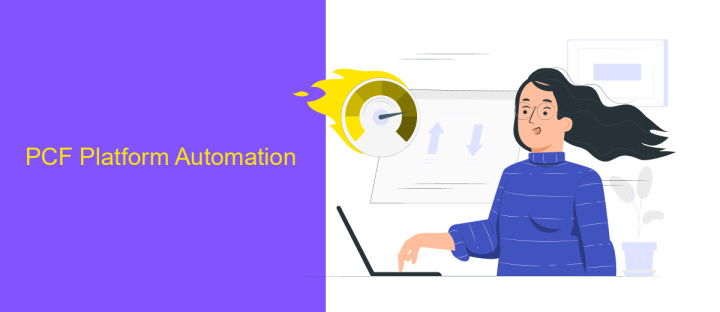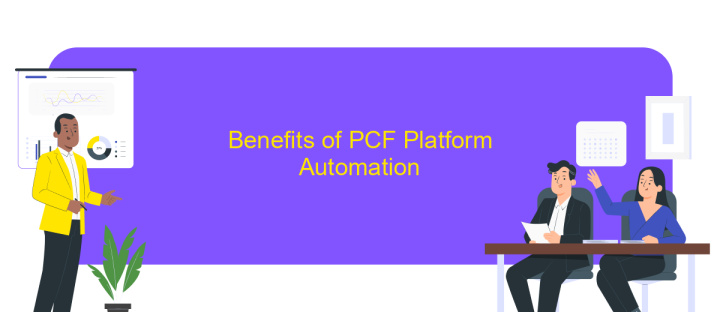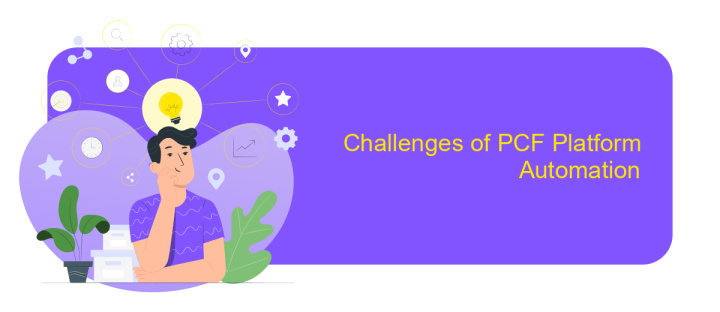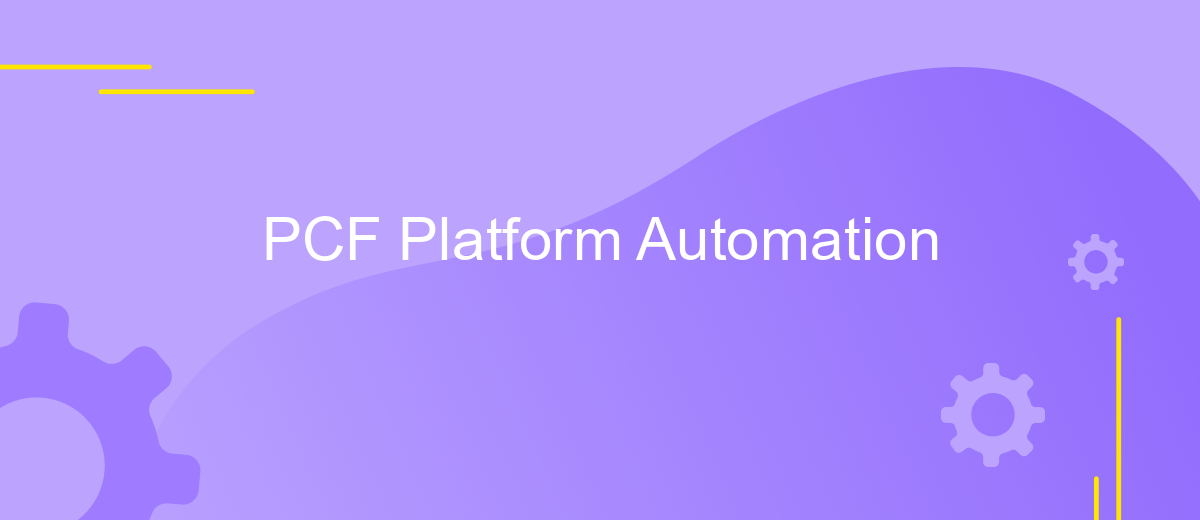PCF Platform Automation
In today's rapidly evolving technological landscape, automation has become a cornerstone for enhancing efficiency and scalability. The PCF (Pivotal Cloud Foundry) Platform Automation offers a robust solution for managing cloud-native applications with minimal manual intervention. By streamlining deployment processes and optimizing resource utilization, PCF Platform Automation empowers organizations to focus on innovation, reduce operational costs, and accelerate their digital transformation journey.
Introduction
The modern enterprise landscape is rapidly evolving, with businesses increasingly relying on cloud-based solutions to enhance operational efficiency and scalability. PCF (Pivotal Cloud Foundry) Platform Automation emerges as a groundbreaking solution to streamline and automate the deployment and management of cloud-native applications. By leveraging automation, organizations can significantly reduce manual intervention, minimize errors, and accelerate the delivery of services, thereby driving innovation and competitive advantage.
- Automated deployment and scaling of applications
- Efficient management of infrastructure resources
- Enhanced monitoring and logging capabilities
- Integration with CI/CD pipelines for continuous delivery
- Improved security and compliance management
Embracing PCF Platform Automation enables organizations to focus on strategic initiatives by freeing up valuable resources otherwise spent on routine tasks. This shift not only optimizes operational workflows but also empowers teams to innovate and adapt to changing market demands swiftly. As businesses strive for digital transformation, adopting automation tools like PCF becomes crucial in maintaining a competitive edge, ensuring resilience, and achieving long-term success in the ever-evolving technological landscape.
PCF Platform Automation

PCF Platform Automation streamlines the deployment and management of applications by leveraging automation tools and processes. This approach minimizes the need for manual intervention, thereby reducing errors and increasing efficiency. By automating repetitive tasks, developers can focus on writing code and improving application features rather than managing infrastructure. This not only accelerates the development lifecycle but also ensures consistent and reliable application performance.
Integrating various services and applications is a crucial aspect of platform automation. Tools like ApiX-Drive can significantly enhance this process by providing seamless integration capabilities. ApiX-Drive allows users to connect different applications and automate workflows without extensive coding knowledge. This capability is essential for maintaining a cohesive ecosystem where different services communicate effectively. By utilizing such services, organizations can achieve greater flexibility and scalability, ultimately leading to a more robust and responsive platform.
Benefits of PCF Platform Automation

PCF Platform Automation offers a streamlined approach to managing cloud-native applications, reducing manual intervention and enhancing operational efficiency. By automating repetitive tasks, organizations can focus on innovation rather than infrastructure maintenance, leading to faster deployment cycles and improved scalability.
- Increased Efficiency: Automation reduces human error and accelerates routine processes, allowing teams to allocate resources more strategically.
- Cost Savings: By minimizing the need for manual oversight, organizations can reduce labor costs and optimize resource allocation.
- Scalability: Automated systems can quickly adapt to changing workloads, ensuring consistent performance and reliability.
- Enhanced Security: Automation ensures consistent application of security protocols, reducing vulnerabilities and safeguarding data integrity.
- Improved Compliance: Automated logging and monitoring facilitate adherence to regulatory requirements, simplifying audits and reporting.
By embracing PCF Platform Automation, organizations position themselves to leverage the full potential of cloud-native technologies. This not only accelerates time-to-market but also fosters a culture of continuous improvement and agility. As businesses seek to remain competitive, the strategic adoption of automation becomes a critical component of their digital transformation journey.
Challenges of PCF Platform Automation

Automating the PCF (Pivotal Cloud Foundry) platform presents several challenges that can impact the efficiency and reliability of deployment processes. One major hurdle is the complexity of integrating diverse tools and systems within the existing infrastructure. This integration requires careful planning and execution to ensure seamless communication and workflow orchestration.
Another significant challenge is maintaining consistency and compliance across various environments. As organizations scale their operations, ensuring that all instances of PCF are aligned with organizational policies and standards becomes increasingly difficult. This requires robust monitoring and governance mechanisms to prevent drift and ensure adherence to compliance requirements.
- Managing dependencies and version compatibility across different components.
- Ensuring security and access control in automated processes.
- Handling error detection and recovery in complex workflows.
- Balancing automation speed with the need for thorough testing and validation.
Despite these challenges, the benefits of PCF platform automation, such as increased efficiency and reduced human error, make it a worthwhile endeavor. By addressing these obstacles, organizations can unlock the full potential of their cloud-native applications and enhance their overall operational agility.
- Automate the work of an online store or landing
- Empower through integration
- Don't spend money on programmers and integrators
- Save time by automating routine tasks
Best Practices for PCF Platform Automation
When automating the PCF Platform, it is essential to establish a robust CI/CD pipeline. This ensures that deployments are consistent and reliable, reducing the risk of human error. Utilize tools like Jenkins or Concourse to automate the build, test, and deployment processes. Make sure to incorporate automated testing at every stage to catch issues early and maintain high-quality standards. Additionally, regularly review and update your pipeline configurations to adapt to new requirements or changes in the platform.
Integrating third-party services can further enhance your automation efforts. For instance, using a service like ApiX-Drive can streamline the integration process by connecting various applications and automating data transfers. This reduces manual intervention and speeds up workflows, allowing your team to focus on more strategic tasks. Ensure that you maintain comprehensive documentation of all automated processes and integrations to facilitate troubleshooting and onboarding of new team members. Consistent monitoring and logging are also vital to quickly identify and resolve any issues that arise, ensuring a smooth and efficient automated environment.
FAQ
What is PCF Platform Automation?
How can I integrate third-party services with PCF for automation?
What are the benefits of automating tasks on the PCF platform?
How does automation impact the scalability of applications on PCF?
What tools are commonly used for PCF Platform Automation?
Apix-Drive is a simple and efficient system connector that will help you automate routine tasks and optimize business processes. You can save time and money, direct these resources to more important purposes. Test ApiX-Drive and make sure that this tool will relieve your employees and after 5 minutes of settings your business will start working faster.


